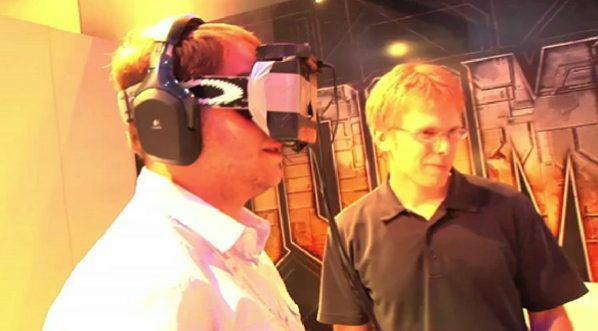Facebook CEO Mark Zuckerberg has been ordered to give a deposition in the long-running dispute between virtual reality company Oculus and games publisher Zenimax media after the latter claimed its intellectual property was used to improve the former’s Oculus Rift VR headset.
ZeniMax Media, the publishing giant behind blockbuster games franchises like The Elder Scrolls and Fallout series, filed a lawsuit back in May 2014 against Facebook owned virtual reality company Oculus for, as it claimed, “unlawful exploitation of intellectual property, including trade secrets, copyrighted computer code”.
It seems that Facebook CEO, Mark Zuckerberg will now have to provide a deposition in the case, despite recent request to the US District Court in Dallas, Texas for a ruling preventing Zuckerberg to do so. However, the deposition will only take place after the litigants (ZeniMax) have pursued depositions from lower ranking members of the Facebook organisation first.

A refresher on the Zenimax V Oculus case to this point:
Oculus CTO John Carmack (joining the company in August 2013), who was formerly an employee of id Software, a ZeniMax subsidiary, took a prototype version of Palmer Luckey’s Oculus Rift to E3 2012 to demonstrate the VR headset using a version of Doom 3 specially modified for virtual reality. The publicity afforded by Carmack’s demonstration of the Oculus Rift, and Luckey and Carmack’s back-and-forth regarding the VR headset, form the foundation of ZeniMax’s complaint against Oculus VR. ZeniMax summarized their claims in a press release put out when they filed their suit against Oculus:
The suit arises from the defendants’ unlawful exploitation of intellectual property, including trade secrets, copyrighted computer code, and technical know-how relating to virtual reality technology that was developed by ZeniMax after years of research and investment. ZeniMax provided this valuable intellectual property to defendants under a binding Non-Disclosure Agreement that specifies such intellectual property is owned exclusively by ZeniMax and cannot be used, disclosed, or transferred to third parties without ZeniMax’s approval. ZeniMax’s intellectual property has provided the fundamental technology driving the Oculus Rift since its inception. Nevertheless, the defendants refused all requests from ZeniMax for reasonable compensation and continue to use ZeniMax’s intellectual property without authorization.
The following month, in June 2014, Oculus responded to the filings with a 32 page court document, submitting their own defendant with a cited public message from Carmack back in 2012:
I warned [Luckey] ahead of time that it was a foregone conclusion that some of the media would report the Rift as my work, despite my ve[r]y explicit description otherwise.”
— id Software Technical Director and ZeniMax employee
John Carmack on Meant To Be Seen (mtbs3d.com),
referring to the Rift developed by Palmer Luckey
(June 7, 2012)
Going on to state that at that point, ZeniMax had failed to identify the alleged stolen intellectual property or computer code. The use of pre-distortion (pre-warping rendering technique for VR headsets) seems to have been at the heart of the IP in question, but Oculus said that it “developed or licensed its own software for the SDK. Throughout this painstaking development process, Oculus VR used no hardware or software technology from ZeniMax.”
Most recently, in July of this year, Facebook and Oculus had a motion to dismiss counts of the federal lawsuit denied by a US District Judge. According to Polygon:
In the July 27 ruling to deny Luckey and Oculus VR’s motion to dismiss, U.S. District Judge Jorge A. Solis addressed the three different counts the two were seeking to have dismissed. Specifically, the defendants in the case were seeking to dismiss the counts that dealt with the misappropriation of trade secrets, breach of an non-disclosure agreement and unjust enrichment.








